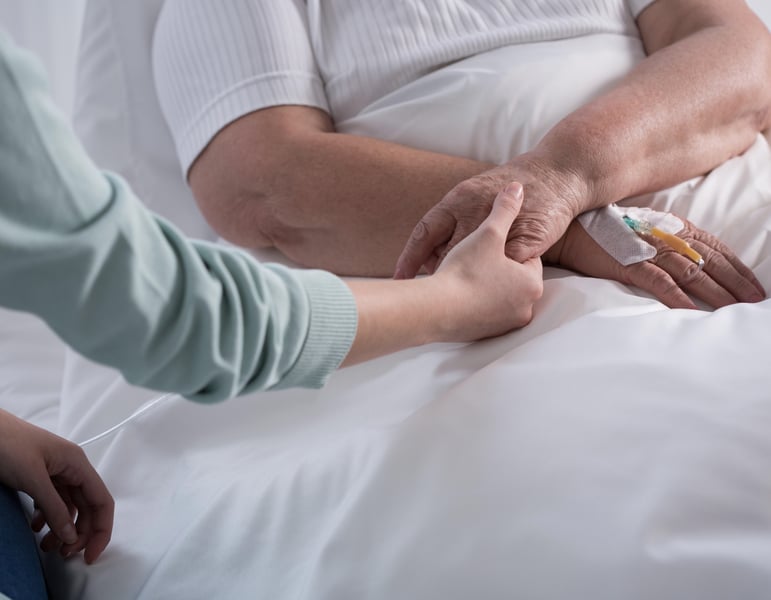Get Healthy!

- Cara Murez
- Posted April 4, 2023
Monoclonal Antibody Treatments Cut COVID Hospitalizations, Deaths by 39%
Monoclonal antibodies have been an effective tool in the battle against COVID-19, reducing the risk of hospitalization or death by 39% for people who started the treatment within two days of a positive test, a new study finds.
These treatments were even more effective for immunocompromised people, regardless of age, according to the University of Pittsburgh researchers.
"The virus was a moving target, and, for two years, monoclonal antibodies were approved, revoked, sometimes reauthorized and sometimes scarce,"said Kevin Kip, lead author of a new analysis and vice president of clinical analytics at University of Pittsburgh Medical Center (UPMC).
"Using UPMC's database of patients treated with monoclonal antibodies -- one of the largest in the U.S. -- we are finally able to conclude that pushing through all these challenges unequivocally saved lives and prevented hospitalizations,"Kip said in a university news release.
The U.S. Food and Drug Administration granted emergency use authorization to five monoclonal antibodies between 2020 and 2022. These human-made antibodies were designed to prevent the virus from entering human cells where they could replicate and cause serious illness.
Those used for COVID-19 were administered intravenously or through an injection. They were restricted to people aged 12 and older with risk factors that made them more susceptible to bad outcomes from the virus.
As the virus evolved, so did the antibodies, with new ones coming in and older ones removed from use after they lost effectiveness.
UPMC provided monoclonal antibodies to patients in Pennsylvania, New York and Maryland at clinics, in emergency departments and during home visits starting with the first authorization in late 2020.
The emergency use authorization for the last available monoclonal antibody was revoked in November 2022.
At that point, UPMC pulled anonymous clinical data on nearly 2,600 patients treated with monoclonal antibodies. The researchers matched them with data from just over 5,100 patients who had been infected with COVID-19 and were eligible for monoclonal antibodies but did not receive them.
In addition to data on effectiveness, the investigators found that patients treated when the Alpha and Delta variants of the virus were circulating experienced greater benefit than those untreated compared to those treated when the Omicron variant was circulating.
This was likely because earlier variants were more deadly, the team suggested. People also had less prior immunity from previous infection or vaccination.
Risk of death and hospitalization had fallen in general by the time the Omicron variants were spreading, so monoclonal antibody treatment had less overall benefit, the study authors said.
However, it still had clinically meaningful benefit, particularly in vulnerable patients, said study co-author Erin McCreary, director of infectious diseases improvement and clinical research innovation at the medical center.
"Right now, COVID-19 has a relatively low risk of death for the general population, but we have seen how quickly this virus can mutate and spread. Nobody can say with certainty that a future variant won't be more deadly,"McCreary said. Should that happen, she said, these new findings give reassurance that quickly giving antibody treatments keeps people alive and out of the hospital.
The analysis was published April 3 in the Annals of Internal Medicine.
More information
The U.S. Centers for Disease Control and Prevention has more on COVID-19 treatments.
SOURCE: University of Pittsburgh, news release, April 3, 2023



